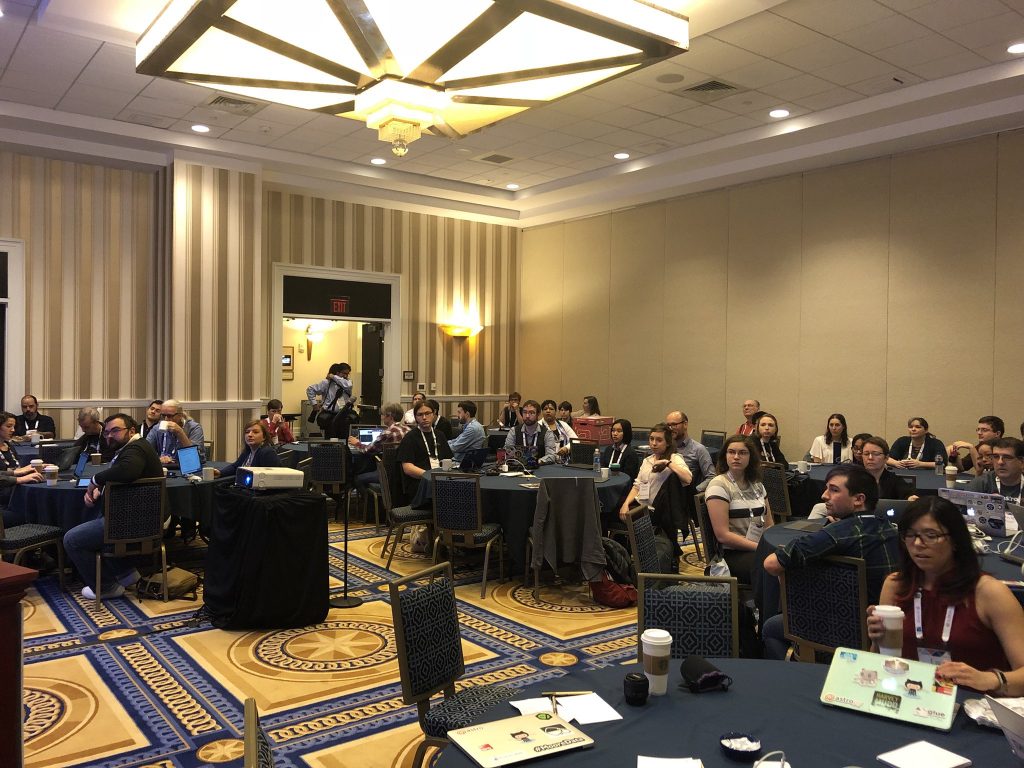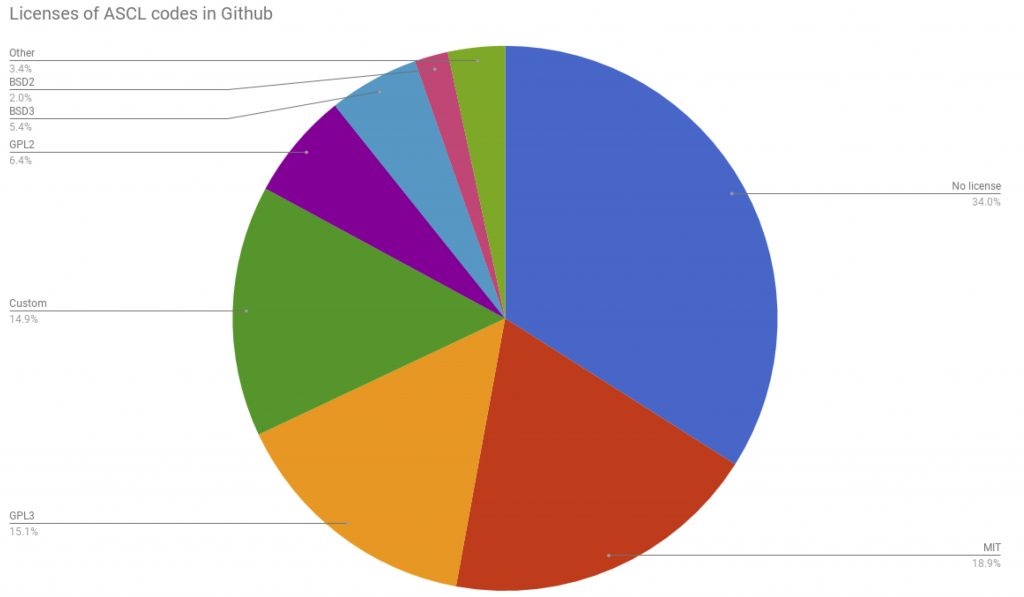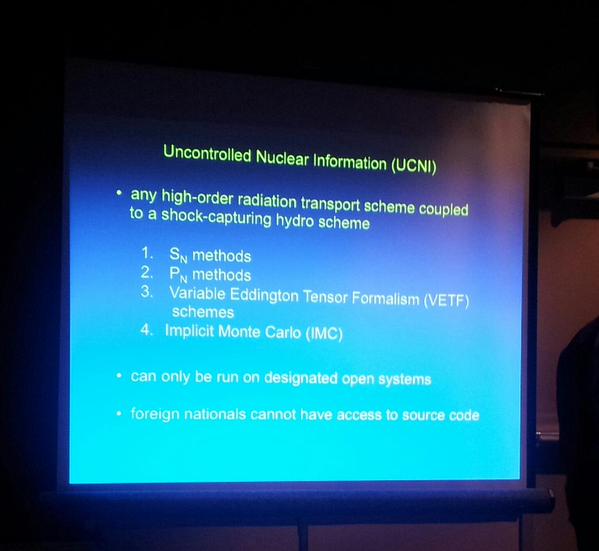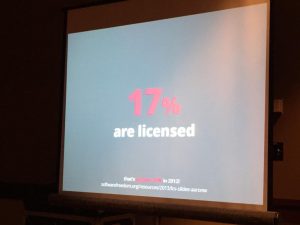Software is an integral part of astronomy research and the American Astronomical Society meetings reflect this. The upcoming AAS meeting in Seattle (January 4-8) offers workshops, sessions, posters, tutorials, and discussions that focus on many aspects of astronomical software. On Tuesday, join us for a special session on code licensing; immediately after, the inaugural meeting of the Software Publishing Special Interest Group will be held. On Thursday, the wildly successful and fun Hack Day returns. Hack Day includes but is not limited to hacking software; whatever skills you have or project you want to take on, there’s a place for you at Hack Day!
Organized by day, below is a list of software-related offerings at the AAS meeting. See you there!
Saturday
Software Carpentry Bootcamp, Saturday-Sunday, 9:00-5:30, organized by August Muench
Computing is now an integral part of every aspect of science, but most scientists are never taught how to build, use, validate, and share software well. As a result, many spend hours or days doing things badly that could be done well in just a few minutes. The goal of AAS 225 Software Carpentry 2 day “bootcamp” is to change that so that astronomers can spend less time wrestling with software and more time doing useful research. Further, good quality, well tested code means science results are easier to verify, share, and update. More information on the Software Carpentry project can be found <http://software-carpentry.org>. The AAS 225 Software Carpentry bootcamp consists of short tutorials alternating with hands-on practical exercises and will cover the core software skills needed build, use, validate, and share software in astronomy: Saturday’s tutorials will comprise shell automation, basic python programming, and unit testing; Sunday’s sessions will shift to focus on advanced python, including numerical and astronomy oriented computing, and version control. Registration is for both days. The target audience for the bootcamp consists of graduate students and early career scientists. The Software Carpentry @ AAS 225 Bootcamp will be run by a set of three certified instructors and a team of helpers. Participants will be required to bring laptops and to install software in advance of the workshop. Some basic familiarity with shell based computing was assumed in setting the bootcamp schedule. See also a FAQ at http://software-carpentry.org/faq.html for more information.
Event Type: Workshop
Organizer: August A. Muench
Location: 609 (Convention Center)
Sunday
Software Carpentry Bootcamp, 9:00-5:00, Day 2; see description above
Astropy Tutorial, Sunday, 8:00-11:00, organized by Perry Greenfield
This tutorial will cover the features and capabilities of Astropy and affiliated packages.
Event Type: Splinter Meeting
Organizer: Perry Greenfield
Location: 612 (Convention Center)
SciCoder@AAS: Intro to Databases for Astronomers, Sunday, 9:00-5:00, organized by Demitri Muna
The volume of data available to astronomers today is enormous. The standard pattern of working with flat files doesn’t scale to what’s available now, let alone with the increasing amount of data that is coming. Every astronomer should have the skills to work with databases both for their own data sets and what is publicly available. This workshop will teach how a database is designed, how to create your own, how to populate it with data, how to query that data, how to work with other databases, and how to write scripts against a database. Exercises and examples will be geared to astronomical data but will be applicable to nearly any data. Participants should have a basic comfort level with Python and will be required to install some software on their laptops before the workshop. The workshop will be presented by Demitri Muna (Ohio State University), creator of the SciCoder workshop, and Alex Hagen (Pennsylvania State University).
Event Type: Workshop
Organizer: Demitri Muna
Location: 607 (Convention Center)
Astrostatistics, Sunday, 9:30-6:00, organized by Eric Feigelson
The fields of astronomy and statistics diverged in the 20th century so that astronomers are often not well informed about the wealth of powerful modern methodologies developed by statisticians. Statistics is needed for: characterizing astronomical images, spectra and lightcurves; inferring properties of underlying populations from limited samples; linking astronomical observations to astrophysical theories; and many other aspects of data and science analysis. An additional difficulty has been the inaccessibility of software implementing modern statistical methods for most astronomers. Fortunately, a large, integrated and user-friendly public domain software system has emerged in recent years to implement modern methods. R with its >5000 add-on CRAN packages has >100,000 statistical functionalities, extensive graphics, links to other languages, and more. Over 100 recipe books and extensive on-line support provide guidance for the sophisticated R user. The AAS astrostatistics tutorials are presented by astronomer Eric D. Feigelson and statistician G. Jogesh Babu, authors of the textbook `Modern Statistical Methods for Astronomy with R Applications’ that won the PROSE Award for best astronomy book of 2012. Participants should bring laptops with R installed (http://www.r-project.org). R scripts and astronomical datasets will be provided. Schedule for Sunday January 4: 9:30-10:30 Introduction to astrostatistics (lecture) 10:30-11:30 Fundamentals of statistical inference (lecture) 11:30-12:30 Introduction to R (tutorial) — Lunch (not provided) — 2:00-3:00 Density estimation or data smoothing (tutorial) 3:00-4:00 Fitting models to data (lecture) 4:00-5:00 Multivariate clustering and classification (tutorial)
Event Type: Workshop
Organizer: Eric Feigelson
Location: 618/619 (Convention Center)
Collaborating Online with GitHub and Other Tools, Sunday, 12:00-5:00, organized by August Muench
Distributed collaboration is a hallmark of modern international astronomical research. We collaborate on everything from software development to paper and grant writing to sharing new results, plots, and data files. The goal of this workshop to provide new tools and techniques for productive efficient collaboration online. This workshop will begin with a hands on tutorial of GitHub. This will include reviewing distributed version control systems and learning collaboration workflows using the GitHub system. During the second part of the workshop we will explore an array of other online tools, ranging from cloud storage (DropBox, Google Drive) to collaborative document creation (Google Documents, online LaTeX editors) to feature tracking platforms (Trello, Jira) and much more. We intend to provide concrete workflows and to imbue you with tips and tricks for using these online tools in your research groups. The target audience for the workshop consists of astronomers at all points in their careers. Presenters will include Arfon Smith <https://github.com/arfon>, PhD Astronomer turned Zooniverse developer turned Github Science head, Brent Beer, a GitHub Trainer, and August Muench (Smithsonian). Participants will be required to bring laptops and to install software in advance of the workshop. Familiarity with git or other version control systems is not a prerequisite.
Event Type: Workshop
Organizer: August A. Muench
Location: 303 (Convention Center)
Tuesday
232. Licensing Astrophysics Codes: What You Need to Know, Tuesday, 2:00-3:30
Research in astronomy is increasingly dependent on software methods and astronomers are increasingly required to share their codes; those who write software need to choose a license that delineates whether, when and how others may use and extend this software. Building on comments and questions about licensing in the January 2014 AAS special session “Astrophysics Code Sharing II: The Sequel”, this session, organized by the Astrophysics Source Code Library (ASCL) and AAS’s Working Group on Astronomical Software (WGAS), and the Moore-Sloan Data Science Environment, explores why providing an explicit license for software is important, explains different common licenses, examines intellectual property concerns common to universities, and provides information on restrictions that arise from ITAR. A panel of speakers will discuss code licensing, share considerations that arise when choosing a license, and benefits of the licenses they chose. Institutional and governmental concerns about intellectual property, its licensing, use, and release, will also be covered. The floor will then be open for discussion and questions.
Session Type: Special Session
Organizer: Alice Allen
Chair: Frossie Economou
Moderator: Alberto Accomazzi
Location: 615 (Convention Center)
232.01. Copy-left and Copy-right, Jacob VanderPlas
232.02. University tech transfer perspective on software licensing, Laura Dorsey
232.03. Relicensing the Montage Image Mosaic Engine, G. B. Berriman
232.04. Export Controls on Astrophysical Simulation Codes, Daniel Whalen
232.05. Why licensing is just the first step, Arfon M. Smith
232.06. Licenses in the wild, Daniel Foreman-Mackey
Open Discussion moderated by Alberto Accomazzi
Software Publication Special Interest Group (SPSIG) Inaugural Meeting, Tuesday, 3:45-4:45
This first meeting of the to-be-formed-at-AAS225 Software Publication Special Interest Group (SPSIG) is open to all interested parties. The main topic of discussion at this meeting will be software citation.
Session Type: Special Interest Group meeting
Organizer: Alice Allen
Location: 615 (Convention Center)
Wednesday
Catalogs, Surveys, and Computation Posters, Wednesday, 9:00-5:30
336.34. A Pipeline for High Resolution Radio Images
Brianna P. Thomas; Alison B. Peck; Jacqueline Hodge; Anthony J. Beasley
336.35. ADMIT: ALMA Data Mining Toolkit
Douglas N. Friedel; Lisa Xu; Leslie Looney; Peter J. Teuben; Marc W. Pound; Kevin P. Rauch; Lee G. Mundy; Jeffrey S. Kern
336.36. Overview of the SOFIA Data Processing System: A generalized system for manual and automatic data processing at the SOFIA Science Center
Ralph Shuping; Robert Krzaczek; William D. Vacca; Miguel Charcos-Llorens; William T. Reach; Rosemary Alles; Melanie Clarke; Riccardo Melchiorri; James T. Radomski; Sachindev S. Shenoy; David Sandel; Eric Omelian
336.37. A Prototype External Event Broker for LSST
Gabriella E. Alvarez; Keivan Stassun; Dan Burger; Robert Siverd; Donald Cox
336.39. Simulating Optical Surveys with the LSST Software Stack
Scott Daniel; K. S. Krughoff; Peter Yoachim; R. Lynne Jones; Yusra AlSayyad; Bryce Kalmbach; Andrew J. Connolly; Zeljko Ivezic
336.40. The LSST Metrics Analysis Framework (MAF)
R. Lynne Jones; Peter Yoachim; Srinivasan Chandrasekharan; Andrew J. Connolly; Kem H. Cook; Zeljko Ivezic; K. S. Krughoff; Catherine E. Petry; Stephen T. Ridgway
336.41. Analyzing Simulated LSST Surveys With MAF
Peter Yoachim; R. Lynne Jones; Srinivasan Chandrasekharan; Andrew J. Connolly; Kem H. Cook; Zeljko Ivezic; K. S. Krughoff; Catherine E. Petry; Stephen T. Ridgway
336.42. Building POCS: An open source observatory control system for amateur telescopes used by the PANOPTES project for the detection of extrasolar planets
Wilfred T. Gee; Josh Walawender; Mike Butterfield; Olivier Guyon; Nemanja Jovanovic
336.43. Adaptive Optics Images of the Galactic Center: Using Empirical Noise-maps to Optimize Image Analysis
Saundra Albers; Gunther Witzel; Leo Meyer; Breann Sitarski; Anna Boehle; Andrea M. Ghez
336.44. Recovering Astrophysical Signals Lost in Noise: Light Curves of Background Objects in Kepler Data
Rebecca L. Bowers; Joshua Pepper; Michael Abdul-Masih; Andrej Prsa
336.45. An Exploration Tool for Very Large Spectrum Data Sets
Duane F. Carbon; Christopher Henze
336.46. Understanding and Using the Fermi Science Tools
Joseph Asercion
336.47. Fact Checking LIGO’s Radiometer Code with Simulated LIGO Data
Samantha E. Thrush
336.48. AstroML: “better, faster, cheaper” towards state-of-the-art data mining and machine learning
Zeljko Ivezic; Andrew J. Connolly; Jacob Vanderplas
336.49. Bayesian Identification of Emission–Line Galaxies with Photometric Equivalent Widths
Andrew S. Leung; Eric J. Gawiser; Viviana Acquaviva
336.50. Statistical Computing for Galaxy Modeling and Residual Detection
Sean McLaughlin; Robert Brunner
336.51. Separating Stars and Galaxies Probabilistically Based on Color
Victoria Strait
336.52. Visualizing SPH Cataclysmic Variable Accretion Disk Simulations with Blender
Brian R. Kent; Matthew A. Wood
336.53. Computer analysis of digital sky surveys using citizen science and manual classification
Evan Kuminski; Lior Shamir
336.55. Improved Functionality and Curation Support in the ADS
Alberto Accomazzi; Michael J. Kurtz; Edwin A. Henneken; Carolyn S. Grant; Donna Thompson; Roman Chyla; Alexandra Holachek; Vladimir Sudilovsky; Stephen S. Murray
336.56. Online Activity Around Scholarly Astronomy Literature – A Discussion of Altmetrics
Edwin A. Henneken; Alberto Accomazzi; Michael J. Kurtz; Donna Thompson; Carolyn S. Grant; Stephen S. Murray
336.57. Astrophysics Source Code Library — Now even better!
Alice Allen; Judy Schmidt; Bruce Berriman; Kimberly DuPrie; Robert J. Hanisch; Jessica D. Mink; Robert J. Nemiroff; Lior Shamir; Keith Shortridge; Mark B. Taylor; Peter J. Teuben; John F. Wallin
336.59. Beyond The Prime Directive: The MAST Discovery Portal and High Level Science Products
Scott W. Fleming; Faith Abney; Tom Donaldson; Theresa Dower; Dorothy A. Fraquelli; Anton M. Koekemoer; Karen Levay; Jacob Matuskey; Brian McLean; Lee Quick; Anthony Rogers; Bernie Shiao; Randy Thompson; Shui-Ay Tseng; Geoff Wallace; Richard L. White
315 Astroinformatics and Astrostatistics in Astronomical Research: Steps Towards Better Curricula, Wednesday, 10:00-11:30
The AAS Working Group on Astroinformatics and Astrostatistics hereby proposes a Special Session for the 225th AAS meeting in Seattle which will highlight the importance of data analytics training in astronomy, both for the sake of astronomical research and in order to make astronomy graduates more employable. Although astronomy and astrophysics are witnessing dramatic increases in data volume as detectors, telescopes, and computers become ever more powerful, the traditional training of astronomy and physics students is not providing skills to handle such voluminous and complex data sets. Equally worrisome, research funds and hiring options in astronomy are diminishing; in particular, a number of candidates for permanent (or steady) jobs significantly exceeds the job availability. As a result many of astronomy graduates have transitioned out of astronomy to work in areas where their analytic skills become highly valuable. Invited talks by a recent astronomy Ph.D. graduate who transitioned to industry, and an industry representative, will critically compare academic and industrial environments.The main goals of the proposed session are to discuss ways to improve Big Data training and research in astronomy, as well as to explore the connections between data science in astronomy and in the other research or technology areas where astronomy postdocs or recent graduates could excel and compete. We will use moderated panel method to facilitate discussion of graduate curriculum at Astronomy Departments, and invited talks to highlight connections to industry.
Session Type: Special Session
Organizer: Zeljko Ivezic
Organizer: Aneta Siemiginowska
Location: 620 (Convention Center)
315.01. Working on interesting problems, Arfon M. Smith
315.02. Astronomer to Data Scientist, Jessica Kirkpatrick
Panel Discussion
The SKA Telescope: Global Project, Revolutionary Science, Extreme Computing Challenges, Wednesday, 12:30-3:30
The Square Kilometre Array (SKA) is one of the most awe-inspiring and audacious science and engineering projects of the 21st Century. With its hundreds of thousands of antennas spread across Africa and Australia, the SKA will have unrivalled scope in observations and is designed to address fundamental questions about the earliest stages of the Universe, such as star formation, dark energy, gravity and life itself. When fully operational in the early 2020s, the SKA will produce 10 times the data of the current global internet. Processing this vast quantity of data will require very high performance central supercomputers capable of in excess of 100 petaflops of raw processing power: about three times more powerful than the most powerful supercomputer in 2013. In addition to developing this high performance computing hardware and software capability, the project must also address the incredibly complex tasks of signal processing, data transfer, storage and curation, and data manipulation. To develop these revolutionary technologies and drive tomorrow’s groundbreaking science, effective global partnerships between governments, academia, and industry are becoming essential. With their long-standing tradition of radio astronomy, the US can bring much expertise to such global partnerships, while at the same time gaining strategic access to world-class instruments. This session will be divided in 2 parts: – Science: Through the case study of the SKA precursor telescopes MWA, ASKAP and MeerKAT, and of the first-class observatories LOFAR and JVLA, we will see how major science questions are already being touched upon, paving the way for the revolutionary capabilities of the SKA. We will finally examine how a project the scale of the SKA will push the frontiers of scientific knowledge.- Computing: The sheer amount of data collected by the SKA will drive fundamental shifts in science-driven technology with daily-life applications in the areas of data transport, data storage, high-performance computing, and algorithm design. We will first present the SKA global computing and technological challenges, and then give the floor to experts from High Performance Computing industry who will provide their views on how they aim to tackle these challenges and how the SKA is driving technology development in a number of domains.
Event Type: Splinter Meeting
Organizer: Tyler L. Bourke
Location: 4C-4 (Convention Center)
332. Catalogs/Surveys/Computation – UVOIR, Wednesday, 3:10-3:20 PM
Session Type: Oral Session
Chair: Steven A. Rodney
Location: 620 (Convention Center)
332.09. Targeted-mode pipeline for the Evryscope: a minute cadence, 10,000-square-degree FoV, gigapixel-scale telescope
Octavi Fors Aldrich; Nicholas M. Law; Philip J. Wulfken; Jeffrey Ratzloff
Thursday
434. Computation, Data Handling and Other Matters Posters, Thursday, 9:00-2:00
434.01. Spherical harmonic transit analysis with PAPER
Jason Ling; Saul A. Kohn; James E. Aguirre
434.02. Time-domain Surveys and Data Shift: Case Study at the intermediate Palomar Transient Factory
Umaa Rebbapragada; Brian Bue; Przemyslaw R. Wozniak
434.03. A new ultra-fast Moving Object Discovery Engine for iPTF, ZTF, and beyond
Frank J. Masci; Adam Waszczak; Russ Laher; James M. Bauer; Thomas A. Prince; George Helou; Shrinivas R. Kulkarni
434.04. Comparing the Mass Functions of Simulated Galaxies
Nicholas Miller; Ariyeh Maller; M.K Ryan Joung; Julien Devriendt; James Bullock
434.05. A New Laboratory for MM-/Sub-MM-Wave Characterization of Cosmic Dust Analogs
Samuel Birsa; Huy Do; Frederick Williams; Lunjun Liu; Ryan Schonert; Thushara Perera
434.06. IPAC Firefly package goes open source
Xiuqin Wu; William Roby; Tatiana Goldina; Loi Ly
Hack Day, Thursday, 10:00-7:00
A day to work intensively on collaborative projects. A wide variety of projects will be undertaken and will be everything from software development and coding to creative outreach projects. Projects that take advantage of the unique gathering of enthusiasm and expertise at the Winter AAS Meeting are particularly encouraged. Hack ideas and participants will be solicited before and during the meeting. Participants can either lead a project or join a project and should plan on focusing primarily on only one hack. In addition, we ask participants to commit to hacking for the majority of the day. Registration is encouraged to facilitate pre-meeting coordination, but not required.
Event Type: Workshop
Organizer: Kelle L. Cruz
Chair: David W. Hogg
Location: 4C-2 (Convention Center)
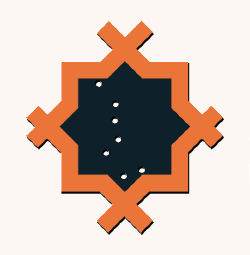 XX meeting yesterday with four tutorials, as is usually done, though not quite like it was done this year. The Programming Organizing Committee and especially the Local Organizing Committee had to convert a conference that had been two years in the planning to a virtual meeting. This offered numerous challenges and learning opportunities! One challenge is that the conference is international; scheduling sessions for access to all participants couldn’t have been easy, but with the technology stack they chose, which includes the conference website, Zoom, YouTube, and Discord, and hard work, all of ADASS’s resources are available to all participants. One might have to get up early or stay up late to hear all of the talks live — the sleep-deprived author of this post awoke at 12:15 AM today to catch the opening sessions — but there are asynchronous options available, so groggy stumbling as one makes her way to the computer is a choice, not a requirement.
XX meeting yesterday with four tutorials, as is usually done, though not quite like it was done this year. The Programming Organizing Committee and especially the Local Organizing Committee had to convert a conference that had been two years in the planning to a virtual meeting. This offered numerous challenges and learning opportunities! One challenge is that the conference is international; scheduling sessions for access to all participants couldn’t have been easy, but with the technology stack they chose, which includes the conference website, Zoom, YouTube, and Discord, and hard work, all of ADASS’s resources are available to all participants. One might have to get up early or stay up late to hear all of the talks live — the sleep-deprived author of this post awoke at 12:15 AM today to catch the opening sessions — but there are asynchronous options available, so groggy stumbling as one makes her way to the computer is a choice, not a requirement.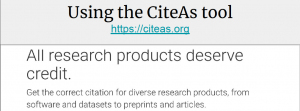 CiteAs uses numerous ways to find a code’s citation method, including looking for metadata files — specific files that contain metadata for the software — on the code’s website and/or GitHub repository. Montage does not currently have a metadata file on its sites, so the citation method CiteAs suggested was not as robust as it could have been. The results of the search and its provenance are shown in the BoF’s slides, which can be downloaded at a link below.
CiteAs uses numerous ways to find a code’s citation method, including looking for metadata files — specific files that contain metadata for the software — on the code’s website and/or GitHub repository. Montage does not currently have a metadata file on its sites, so the citation method CiteAs suggested was not as robust as it could have been. The results of the search and its provenance are shown in the BoF’s slides, which can be downloaded at a link below.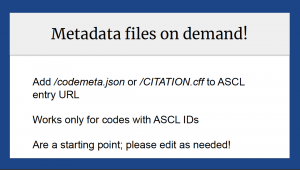 The files the ASCL creates programmatically, codemeta.json and CITATION.cff, are intended to be starting points and contain placeholders for data the ASCL does not capture, but which we feel should be included in the metadata file; we encourage software authors to edit these files before they are placed on one’s code site.
The files the ASCL creates programmatically, codemeta.json and CITATION.cff, are intended to be starting points and contain placeholders for data the ASCL does not capture, but which we feel should be included in the metadata file; we encourage software authors to edit these files before they are placed on one’s code site.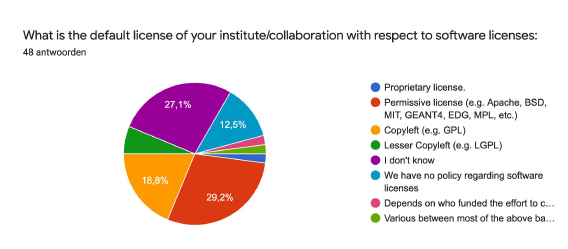 Providing a license for your software is vitally important, as it lets others know what they can and cannot do with your software. Resources and other information from the earlier BoF are available online, and Grange’s summary slides for our software metadata BoF are included in the slides file below.
Providing a license for your software is vitally important, as it lets others know what they can and cannot do with your software. Resources and other information from the earlier BoF are available online, and Grange’s summary slides for our software metadata BoF are included in the slides file below.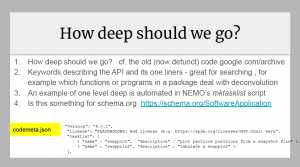 He thinks a conference would be an ideal event for getting all the stakeholders together, and has identified a possible candidate conference for this activity.
He thinks a conference would be an ideal event for getting all the stakeholders together, and has identified a possible candidate conference for this activity.